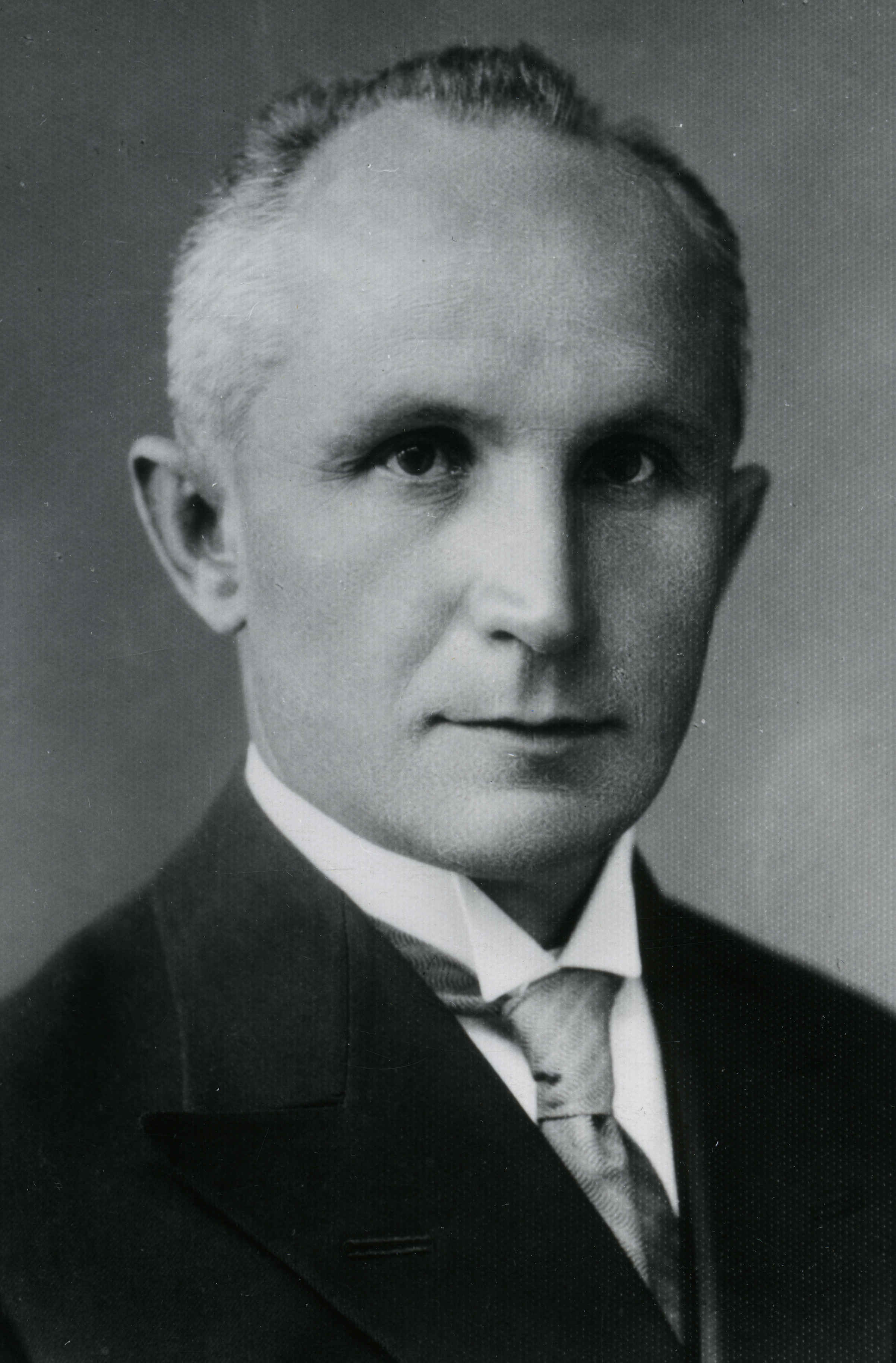
Jüri Parijõgi
Jüri Parijõgi (until 1935 Parinbak, also Parinbach, 2. IX / 21. VIII 1892 – 9. VII 1941) was an Estonian children’s author and teacher. Parijõgi, who wrote stories, and also travelogues and fairy-tales, is regarded as the first Estonian author who wrote purely for children and young people. The themes of his stories are various mental and social problems of children and young people.
Parijõgi attended Kunda village school, from 1905 to 1909 the Rakvere county school, and then did teacher training courses at the same place. From 1910 he worked as a teacher at Kaarli village school near Rakvere. He took part in the First World War from 1915 to 1917, and in the War of Independence from 1919 to 1920. From 1920 to 1921 he taught at Rakvere primary school number 1, and then at Rakvere teachers’ seminary. In 1929 he moved to Tartu, and from 1929 to 1931 he studied in the Faculty of Philosophy at the University of Tartu. From 1930 he was the headmaster of primary school number 4 in Tartu. On the night of 7 July 1941 he was taken from his home for interrogation, and perished as a victim of the mass murder by the NKVD in Tartu prison on the night of 8-9 July.
Parijõgi made his literary debut in 1913 in a supplement to the newspaper Tallinna Teataja with the story Külaline (‘The Visitor’); the first book to appear was a children’s play in 1925, Juku ja Hilda jõulujuhtumised metsas (‘Juku and Hilda’s Christmas Happenings in the Forest’, under the name J. Parinbak). He earned wider attention in 1926 with Semendivabrik (Tsemendivabrik from the 2nd edition in 1936 – the ‘Cement Works’), which collected together his stories that had appeared in the press in that decade. The setting of the “Cement Works” stories is an Estonian village at the turn of the twentieth century: the action and the subject matter are conveyed through a child’s observations, the narrative style is empathetic and humorous. The same quality characterises the collection Jaksuküla poisid (‘The Jaksuküla Boys’, 1930). Teraspoiss (‘Iron Boy’), which appeared in 1937, is the story of a boy who thanks to his determination gets through his difficulties in life, and won the president’s literature prize in 1938. Parijõgi also wrote extensively for children about hiking and seafaring. Several selections of Parijõgi’s stories have appeared posthumously.
Parijõgi also write short stories for adults and humorous short prose (under the name Raud-Katk in the journal Rahva Sõna) and published textbooks, readers and pedagogical materials he wrote alone or in collaboration.
M. U. (Translated by C. M.)
Books in Estonian
Stories
Semendivabrik. Tartu: Loodus, 1926, 121 lk. [Jutukogu. 2. trükk: ‘Tsemendivabrik’, 1936.]
Laevapoisi päivilt. Tallinn: Eesti Õpetajate Liit, 1927, 126 lk. [Jutukogu. 2. trükk: 1930.]
Ühe poisu reisilood. Tallinn: Pääsuke, 1927, 32 lk. [Jutukogu.]
Jaksuküla poisid. Tartu: Loodus, 1930, 118 lk. [Jutukogu. 2. trükk: 1936.]
Jõulud! Jõulud!. Tallinn: Eesti Õpetajate Liit, 1930, 63 lk. [Jutukogu.]
Suuskadel Vallastesse. Tallinn: Eesti Õpetajate Liit, 1932, 80 lk. [Jutukogu.]
Meie Eku. Tartu: Kool, 1937, 168 lk. [Jutukogu.]
Kulbult Atlandile: Viis merejuttu. Tallinn: Loodus, 1939, 176 lk. [Jutukogu. Faksiimiletrükk: 1994.]
Teraspoiss. Tartu: Loodus, 1937, 207 lk. [Järgnevad trükid: 1939, 1948, 1994.]
Väikesed koduhoidjad. Tartu; Tallinn: Loodus, 1939, 16 lk.
Mesinikud Enn ja Jaan. Tartu; Tallinn: Loodus, 1939, 28 lk.
Teotahtelised poisid. Tallinn: Eesti Kirjastus, 1942, 225 lk. [Jutukogu.]
Kui isa kinkis raamatuid. Tallinn: Eesti Riiklik Kirjastus, 1957, 56 lk. [Jutukogu. Järgnevad trükid: 1973, 1981.]
Rein ja Anna mängivad poodi. Tallinn: Eesti Riiklik Kirjastus, 1958, 56 lk.
Jutte. Tallinn: Eesti Riiklik Kirjastus, 1958, 244 lk.
Jutte. Tallinn: Eesti Raamat, 1982, 334 lk.
Jõulud, jõulud!. Tallinn: Tänapäev, 1999, 16 lk. [Sari ‘Minu esimene raamat’.]
Travelogues
Kevad kutsub: Reisimälestusi Muhu- ja Saaremaalt. Tallinn: Eesti Õpetajate Liit, 1929, 80 lk.
Soome: Reisikirju. Tallinn: Eesti Õpetajate Liit, 1929, 70 lk.
Alutaguse metsades: Matkamälestusi. Tartu: Loodus, 1937, 239 lk.
Adaptations of folklore
Külaliste leib ja teisi eesti muinasjutte. Tartu: Eesti Kirjanduse Selts, 1933, 135 lk. [Järgnevad trükid: 1942, 1977, 2001.]
Suur-Tõll: Muistend. Tartu; Tallinn: Loodus, 1940, 16 lk.
Memoirs
Kodumaa helinad: Mälestused. J. Parijõe elulooga varustanud M. Raud. Toronto: Noorte-Orto, 1953, 175 lk.



